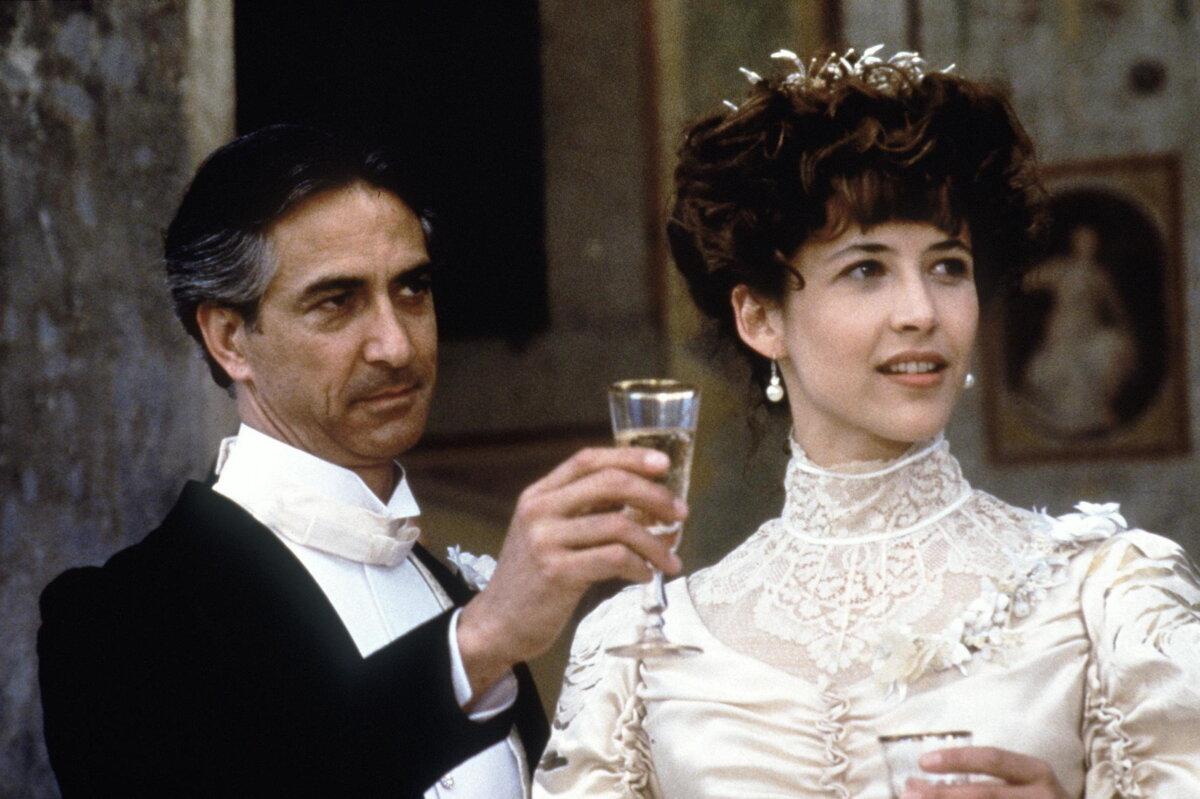I never may believe These antique fables, nor these fairy toys. Lovers and madmen have such seething brains, Such shaping fantasies, that apprehend More than cool reason ever comprehends. The lunatic, the lover and the poet Are of imagination all compact.
These are the words of Duke Theseus near the end of Shakespeare’s luminous and enchanting play “A Midsummer Night’s Dream.” Theseus’s speech invokes some of the play’s central issues, principally about the nature of love, which can seem at times like unreasonable madness, full of change and impermanence.
Theseus (David Strathairn) makes a speech extolling love on the occasion of his marriage to Hippolyta (Sophie Marceau) in the 1999 film version of the play. Fox Searchlight Films/MovieStillsDb






